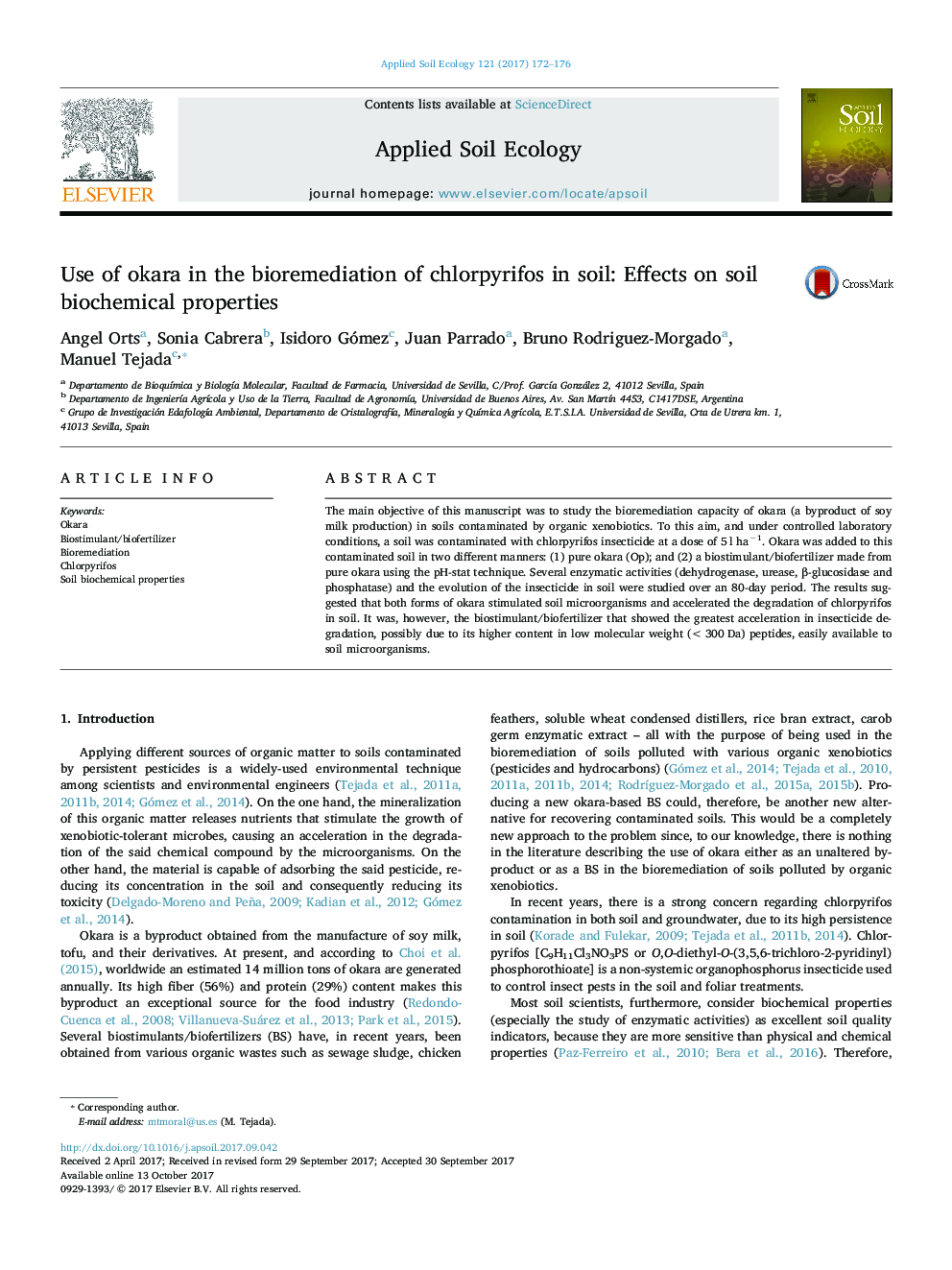| کد مقاله | کد نشریه | سال انتشار | مقاله انگلیسی | نسخه تمام متن |
|---|---|---|---|---|
| 5742556 | 1617763 | 2017 | 5 صفحه PDF | دانلود رایگان |
- Chlorpyrifos insecticide caused a negative effect on soil biochemical properties.
- The application of okara decreased the toxic action of chlorpyrifos.
- The new biostimulant/biofertilizer obtained from okara was more effective than pure okara in the bioremediation process.
- The low molecular weight protein of okara biostimulant/biofertilizer increased the degradation of insecticide.
The main objective of this manuscript was to study the bioremediation capacity of okara (a byproduct of soy milk production) in soils contaminated by organic xenobiotics. To this aim, and under controlled laboratory conditions, a soil was contaminated with chlorpyrifos insecticide at a dose of 5 l haâ1. Okara was added to this contaminated soil in two different manners: (1) pure okara (Op); and (2) a biostimulant/biofertilizer made from pure okara using the pH-stat technique. Several enzymatic activities (dehydrogenase, urease, β-glucosidase and phosphatase) and the evolution of the insecticide in soil were studied over an 80-day period. The results suggested that both forms of okara stimulated soil microorganisms and accelerated the degradation of chlorpyrifos in soil. It was, however, the biostimulant/biofertilizer that showed the greatest acceleration in insecticide degradation, possibly due to its higher content in low molecular weight (<300 Da) peptides, easily available to soil microorganisms.
Journal: Applied Soil Ecology - Volume 121, December 2017, Pages 172-176
